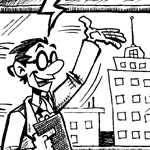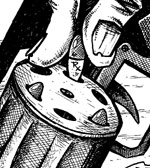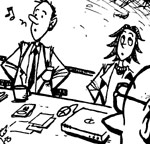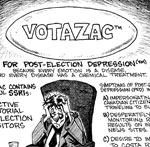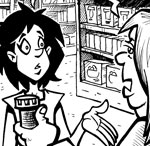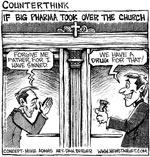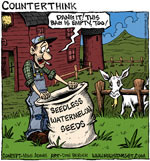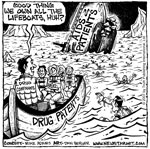Physical, Psychological, and Situational Causes of Insomnia
| Share on Facebook | Share on Twitter | Share on Google+ |
Sometimes insomnia can be traced to a single cause. Usually, however, multiple factors cause insomnia. Fortunately, this means that taking care of any cause of insomnia will usually bring relief.
Psychological Causes of Insomnia
Psychological problems can cause loss of sleep. Loss of sleep can cause psychological problems. A combination of insomnia with anxiety, depression, and/or unresolved stress can create a vicious cycle of loss of sleep and mental distress. Among the most common psychological issues causing sleep loss and fatigue are:
- Anxiety and insomnia. Apprehension, tension, and feelings of helplessness, hopelessness, and worry almost always cause insomnia. There are many rational reasons to be anxious in the modern world, at least as many triggers for anxiety as there are people. Treating anxiety usually relieves insomnia.
- Depression and insomnia. Sadness, discouragement, and despair during the day usually cause sleeplessness during the night. Correcting the imbalances in brain chemicals that aggravate depression usually improves insomnia.
- Stress. Short-term and chronic worries keep people awake. Removing the stress in the insomniac's life is more useful than taking medications to feel it less.
Counseling from a sleep therapist or medical treatment help. But changes in routine (link back to five tips in Anxiety and Insomnia article) can bring relief even when it's not possible to see a specialist.
Physical Causes of Insomnia
One of the most common causes of insomnia in women is menopause. Hot flashes, skin dryness causing itch, and irritability link menopause and insomnia in up to 80 per cent of women at one time or another. Among women who have not reached menopause, premenstrual syndrome and premenstrual dysphoric disorder can cause monthly problems with insomnia that usually last 3 to 7 days before changes in hormone levels bring relief.
One of the most common causes of insomnia in men is enlargement of the prostate. Interfering with a man's ability to hold urine, prostate problems can cause nighttime dribbling, incontinence, and "needing to go." Every time a man turns on the light to get up to go to the bathroom, the production of melatonin in his brain is interrupted, and getting back to sleep is made more difficult.
Males and females of all ages, children, teen, or adults, need to have at least six hours of uninterrupted sleep every night so their brains can make melatonin. Exposure to light in the blue wavelengths in the visible spectrum resets the pineal gland so it stops making melatonin. Even if your eyelids are closed, and even if the light is very dim, blue light keeps you awake. Avoiding exposure to light during the night is critical for avoiding the "sun's up" signal that makes you wake up early.
Situational Causes of Insomnia
Sometimes, of course, you don't have to be sick to be unable to sleep. As mentioned above, too much light is a common cause of failure to get enough sleep. Noise, extreme temperatures, a lumpy mattress, or a snoring sleeping partner will keep you awake. You have to take care of these causes of insomnia yourself, but when you do, relief is almost always immediate.
Apnea, the Insomnia that Isn't Really Insomnia
Even if you take care of these three causes of insomnia, there may be another problem with a purely physical cause: Sleep apnea. Apnea is a word derived from two Greek words that literally mean "not breathing." People who have sleep apnea literally stop breathing dozens or even hundreds of times during the night.
How common is sleep apnea?
Sleep scientists report that breathing problems are extremely common in people who endure insomnia or chronic fatigue. According to Dr. Barry Krakow:
1. If you have either chronic fatigue or chronic insomnia, there is a 90 per cent or greater chance that you also have a sleep breathing problem.
2. If you have a sleep breathing problem, you can also suffer other kinds of insomnia, but over 50 per cent of your lost sleep is probably due to apnea.
Sleep apnea makes sleep impossible. If you cannot breathe because some portion of the airway from your nose to your throat is closed, your oxygen levels fall.
Your heart has to pump harder and faster to attempt to circulate the oxygen remaining in your bloodstream to your brain and other vital organs. Finally enough pressure builds up with your exhalation that your mouth explodes open. There will be a snort or a snore, and for at least a few seconds or a few minutes, you breathe faster to try to make up your oxygen deficit.
You may not remember anything about your sleep apnea unless your spouse or bed partner tells you about them the next morning. If you sleep alone, you may just be puzzled that you never feel refreshed when you get up in the morning. There are telltale signs, however, that you have sleep apnea in addition to any other kinds of insomnia:
- Having to get up to urinate once or more during the night even though you do not have a bladder infection or (in men) enlarged prostate.
- Waking up with a dry mouth.
- Signs of tossing and turning, such as sheets and blankets kicked off the bed even though the air temperature was comfortable.
These are symptoms of sleep apnea. Sleep apnea isn't something you can treat entirely on your own, but you don't necessarily have to have a CPAP machine. Many people find that taking care of sinus congestion, using breathing strips, or treating allergies helps a great deal.
Selected References:
Budhiraja R, Budhiraja P, Quan SF. Sleep-disordered breathing and cardiovascular disorders. Respir Care. 2010 Oct;55(10):1322-32; discussion 1330-2. Review.
Krakow B, Ulibarri VA, Romero EA. Patients with treatment-resistant insomnia taking nightly prescription medications for sleep: a retrospective assessment of diagnostic and treatment variables. Prim Care Companion J Clin Psychiatry. 2010;12(4). pii: PCC.09m00873.
-
Skin CareMen Skin Care
-
Free ResourcesFree eBooks
-
Every human being is the author of his own health or disease.Buddha
-
Featured Health Supplement
 If you find a product that is as effective as Total Balance, and is better value for money, let us know and we will give you a refund equivalent to your entire purchases of Total Balance…retrospective.
If you find a product that is as effective as Total Balance, and is better value for money, let us know and we will give you a refund equivalent to your entire purchases of Total Balance…retrospective.
-

